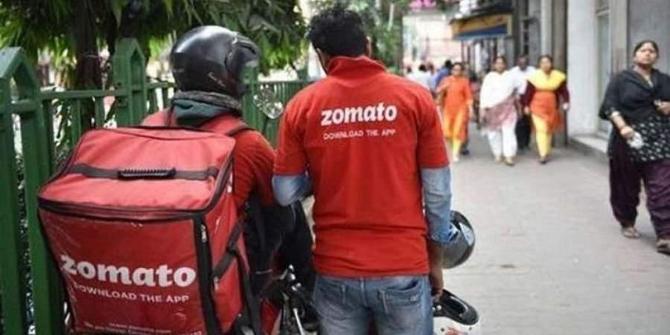Stock will need to move to about Rs 328 a share (4.3x over possible IPO price of Rs 76) for it to be part of Nifty index.

Zomato could get added to the MSCI and FTSE indices by the end of this year, while an entry to the Nifty or the Sensex would be challenging before the second half of 2022, said Brian Freitas, an analyst at independent research provider Smartkarma, in note.
“With nearly the entire pre-IPO shares locked up for one year, the free float will be very low and the stock will need to move higher to around Rs 328 per share (4.3 times over possible IPO price of Rs 76) to be included in the Nifty index (with no change in the market cap of the smallest index constituent).
"We can be reasonably certain that Zomato will not be included in the Nifty index till the September 2022 rebalance at the earliest,” he said.
While the promoter holding in Zomato is pegged at zero, all the shares except those held by certain alternative investment funds (AIFs) and foreign venture capital investors (FVCI) such as Sequoia Capital India and Mirae Asset-Naver will be under one-year lock in.
A special exemption to AIFs and FVCI allows them to sell their holdings immediately after listing.
Shares allotted to anchor investors are subject to 30-day lock in from the date of allotment.
Newly-listed companies can get added to the SCI India index and the MSCI Global Investable Market Indexes (GIMI) under the so-called ‘fast entry’ route provided they meet the market cap criteria.
“Zomato will have a market cap of $8 billion at the upper end of the IPO range and will meet the full market cap requirement.
"At a free float of 8.57 per cent, the free float market cap of $685 million (at the upper end) will be lower than the inclusion threshold of $2.36 billion.
"We do not expect Zomato to get Fast Entry into the MSCI Standard index,” said Freitas.
Once Zomato’s anchor lock-in period gets over, its free float market cap will go up from 8.54 per cent to 15.64 per cent.
This will help the stock get added to the MSCI indices during its semi-annual index rebalancing exercise in November and in the FTSE indices during its quarterly index review in December.
Photograph: PTI Photo












 © 2025
© 2025